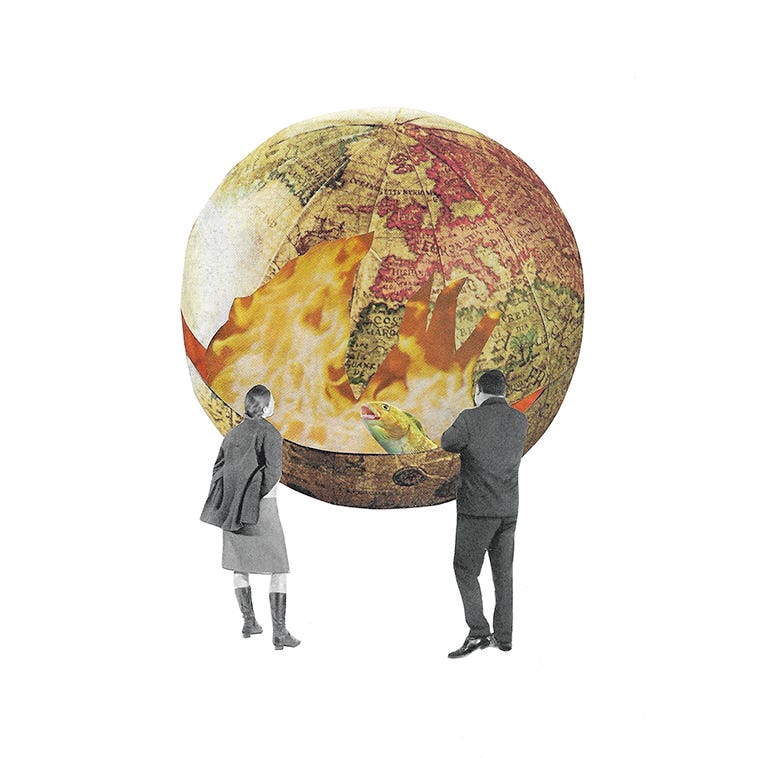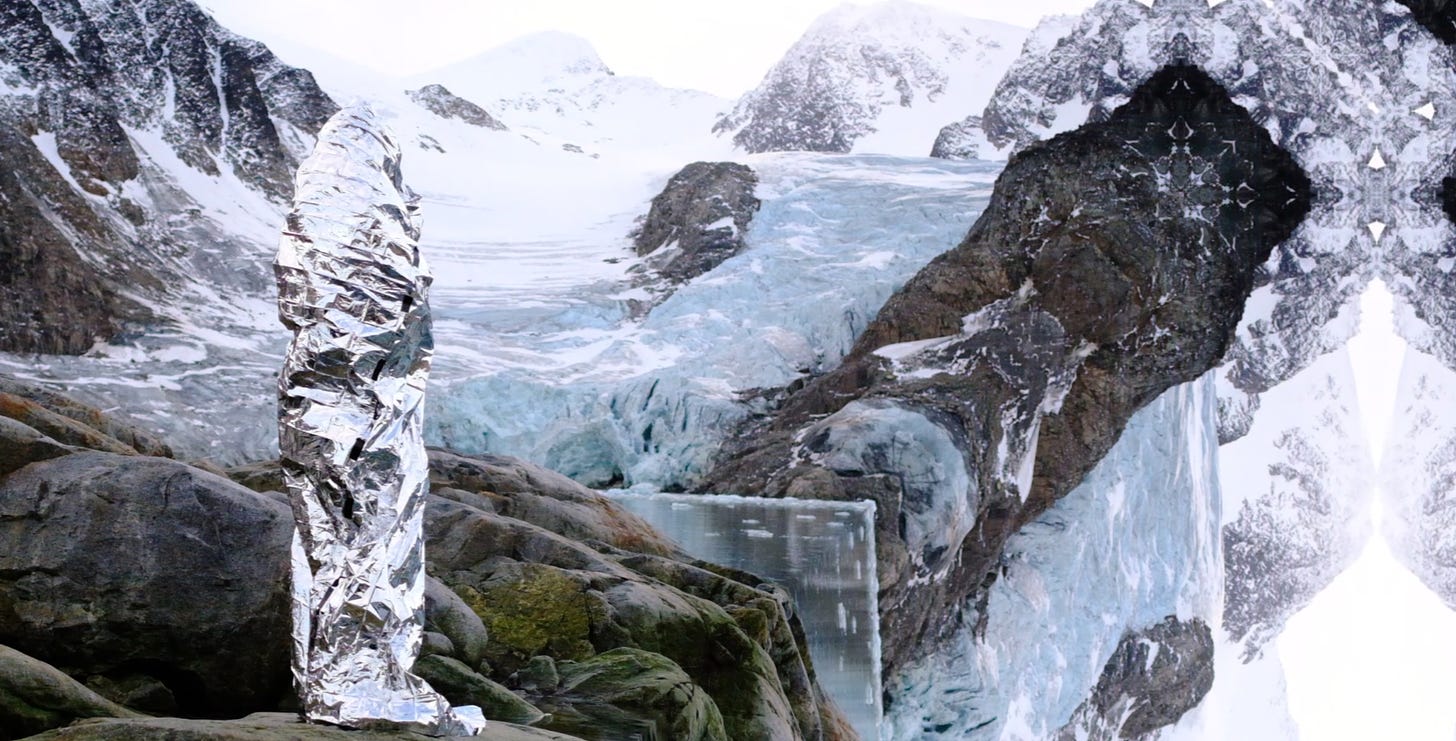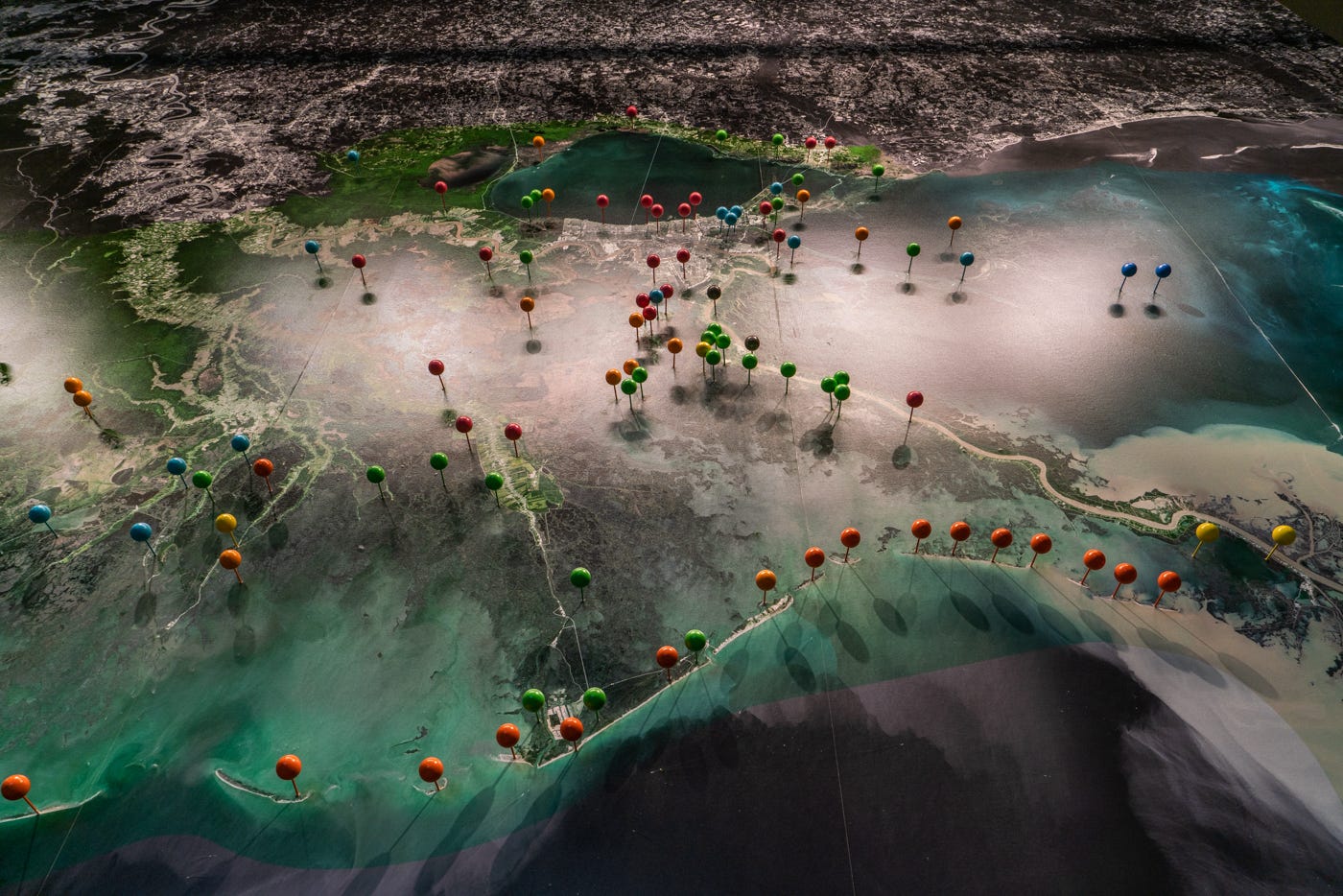At the recent Broto: Art-Climate-Science virtual conference (May 2021), we explored with transdisciplinary experts the meaning of global citizenship and whether a common understanding might provide a unifying force toward a coordinated climate crisis remedy. You can see the video replays on our YouTube channel.
As the host of the conference, I think the jury is still out. Yet, the debate is crucial to Broto’s sibling program Bank of Nature.
Who gets to be a citizen?
It’s, of course, not automatic.
First, there is the privilege of race and geography and economic station. Even those born into a nation state may not be citizens. Second, there is the influence of the individual versus the conglomerate, which is also a citizen. Third, citizenship may not be fully understood in terms of responsibilities or roles beyond, maybe, voting and efforts to exclude people from the protections — real or imagined — of citizenship. We might call that class distinction or discrimination, in the arbitrary, society-driven ways that make some citizens more worthy than others.
One might ask why such as situation is allowed to persist? I suggest the Bank of Nature helps to answer it.
The macro story of global citizenship is quite clear. Yes, together we can move this mountain. But, togetherness in this cause is a fantasy or, more generously, an aspiration. The more realistic micro story is that our individual relationships with a threat like climate change are irrelevant — deeply and troublingly so.
At Bank of Nature, everyone will be our customers. Citizens. Corporations. Governments. People, even those without agency. Eventually, Earthlings.
What makes them want to do business with us? Among the million other details in our offering to Earthling-customers, is this: Bank of Nature wants to make people relevant in the climate remedy. How? Again, a million details, but by reinvesting in nature before anything else.
“Wait, why are we not relevant??”
Questions from you are helpful in our exploration— to answer, clarify, test, challenge, redefine and substantiate why an alternative like Bank of Nature is worth your valuable time.
For debate then, here are a five takeaways — synthesis — from Broto’s unique conversations about global citizenship. Feel free to argue against — because Bank of Nature invites constructive dissent.

1) There are differences between citizens, humanity and society.
There are 7.8 billion people around the world — this sea of humanity and our Bank of Nature customers.
“Citizen” is the status of a person under law.
“Humanity” is a collective noun for Homo Sapiens of the planet, not all of them citizens either by their own indifference, or by active exclusion.
“Society”, is a collective noun for social constructs by which we, citizen Earthlings, agree to function sometimes in harmful ways to other humans and other species.
It’s a mistake to conflate their meanings, though that happens all the time in literature, academia or common parlance. I argue that there are conflicting agendas when it comes to a fundamental assessment about who or what is in charge.
This is our Bank of Nature market.
Alarmingly, the natural environment that makes citizens, humanity and society viable is not part of the equation, which is the key corrective driver of Bank of Nature. The idea that humans are part of nature is obvious in fact but very murky in practice in a society that puts itself, in priority, above nature and above humans.
2) The climate crisis is irrelevant to a functioning modern-society human.
An old fashioned definition of humanity is about compassion, empathy and love. A modern definition is functional — as a part of society. That may sound good — being a citizen who is part of society, like you’re included in something bigger — but this society is one that doesn’t offer a view of future made sustainable.
We lack for alternative, safer visions of the future. Or, other societies.
Sadly, it’s not an effective pitch to get individuals riled about climate change, as much as some might already be, because it’s not a functional priority for people just going day-to-day and already composting, recycling, and driving a Prius. Shaming, fear-mongering, and appeals for the future health of children are vivid efforts for change, but are placations that, instead, absolve non-protesters of accountability. “Great, those guys represent my outrage at our climate issue. Now, how do I pay the bills?”
You, your neighbors and the 7.8 billion other humans on the planet have, generally, an abstracted understanding of the threat of climate change. People, individuals, have more urgent pressing issues that pull focus. That’s understandable when there are jobs, kids, health, justice, injustice and Kardashians to keep up with — among other priorities like food and shelter. A thoughtful reflection on what good citizen Earthling behavior is, in hindsight, just as ineffective as the loudest protesters.
The crisis is structural far beyond what individuals and civic marches will impact.
By ensuring that nature is paid first, as we propose with Bank of Nature and is not yet done today, the need for individuals to fret over the climate situation is reduced or even nullified. Woudn’t that be a relief?

3) Corporate citizens can make a real and immediate difference in a climate endgame, but don’t — either because they have contrary priorities or, so far, they have no way to effectively marshal their financial might to pay into climate security.
The latter, of course, is a reason for Bank of Nature, as a repository for investments in stewardship (our references to pension funds and fiduciary duty) and offset payments for negative externalities created to generate wealth (a cost of doing business in nature).
Like it or not, the citizens with the scale, influence and ability to affect positively a climate outcome are corporations — immortals, not humans, sanctioned by the law to have the rights of citizens. Guesstimates of total numbers of businesses in the world, public and private/small and large, are in the 100 million+ range, and only 45,000 or so trade on public exchanges.
So-called sustainable businesses, those focussed on social initiatives and less bad business practices, still want growth. Less woke businesses, of course, value growth over anything else, and will fight any environmental or social initiative that might cost shareholder value or curb access to nature as an input to wealth creation.
In America, the US Supreme Court voted in favor of Citizens United v. Federal Election Commission in 2010, in a landmark ruling that decided, under the First Amendment about free speech, that governments can not restrict political expenditures by corporations, associations or labor unions. There are no limits on corporate spending in elections, including political contributions from fossil fuel companies, for example, that want representatives in the US Republic to vote for and against the policies that promote or inhibit their business prospects, regardless of their impacts on people.
4) Nation states and geopolitics are based on wealth and economy, not citizens.
The COVID-delayed Olympics in Tokyo are days away. The G7 summit in Cornwall has just ended as I write this. Flag waving and national pride are on display, created by a map of imaginary boundaries that are also about national self interests and security. All that pageantry and the boastful confidence of world leaders aspires to the idea of cooperation and global prosperity but hides the backroom deals tied to the currency of business, competitive advantage and trade.
Government — the spectrum from flawed democracies to authoritarian regimes — is compromised by corporate capture.
“Corporate capture” is a phenomenon where private industry uses its political influence to take control of the decision-making apparatus of the state, such as regulatory agencies, law enforcement entities, and legislatures. When corporations draft legislation privately with lawmakers that they have significant influence over, this results in laws and policies that benefit corporations, while often harming the environment, low-income people, and communities of color.
Government for the corporation by the corporation, to borrow from the Abraham Lincoln at Gettysburg.
Necropolitics, a gruesome word coined in 2003 by philosopher Achille Mbembe, is the prevalence of state-sanctioned policy that dictates how some people live and how some will die: wars, genocides, refugee migrations, ecocide, dot-dot-dot. A helpful, if terrifying, summary is here1.
If government is a representation of humanity — a citizen-led organizing principle — then we’re a long way from compassion, empathy and love.

5) A positive business case will trump a positive humanitarian case, unless it too is a good business case.
Citizens are committed to currency, economy and wealth. If we accept that as an absolute both now and in a climate-changed future, then we see how important it is for Bank of Nature to show a return on investment before it shows any proof of a structural fix for our climate woe.
It boggles my mind that a climate remedy must first pass muster with a profit-driven investor. Bank of Nature, in concept, works that paradox into its offering, steeped as it is in money culture, because that is the culture that can pay for the change we need.
This is the opportunity to shift the world: ROI.
Banks are among the most powerful corporate citizens in the world — none more so than Bank of Nature.
Now, which of these banks, these neighbors, these citizens, do you want at your block party potluck?
Please let me know if you want to participate in our Bank of Nature development. We’re building a model for global co-creation and, well, need all the help we can get. Thanks to ASU for its Fellowship support for Bank of Nature.
Antonio Pele, Achille Mbembe: Necropolitics, March 2020



